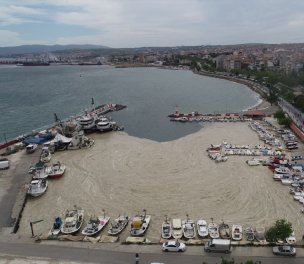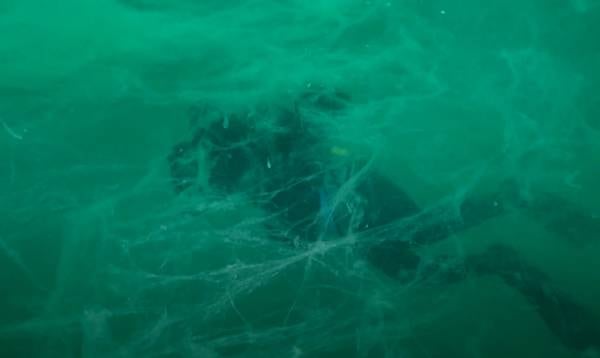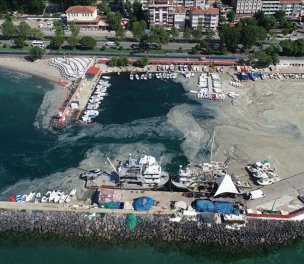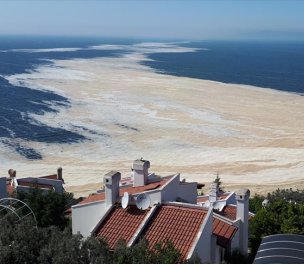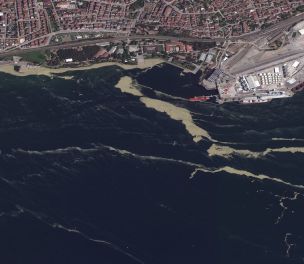Photo: AA
Click to read the article in Turkish
Minister of Environment and Urbanization Murat Kurum has said that some 392 cubic meters of marine mucilage, or "sea snot," was collected from the surface of the Sea of Marmara in two days.
"Our goal in this work is to eliminate problems such as visual pollution and smell and allow the sunlight to pass through to the bottom areas," Kurum told the state-run Anadolu Agency (AA), adding that the efforts were "greatly beneficial."
Large chunks of marine mucilage have been observed on the surface of the sea since early May but it started building up in the deep much earlier, according to underwater observations. The Sea of Marmara is an inland sea in northwestern Turkey that links the Black Sea to the Aegean and Mediterranean seas.
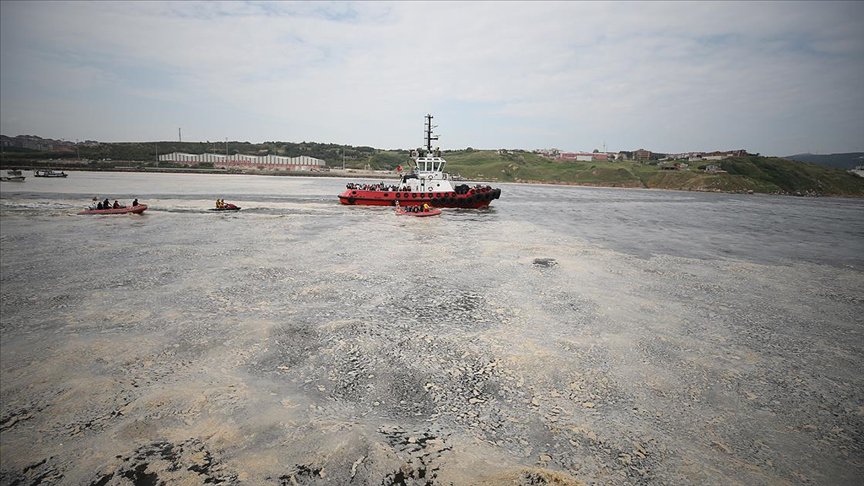 Photo: AA
Photo: AA
Cleaning works started on Wednesday (June 8) in 31 areas in eight provinces surrounding the Sea of Marmara (İstanbul, Kocaeli, Bursa, Balıkesir, Çanakkale, Yalova ve Tekirdağ), he told the state-run Anadolu Agency (AA) yesterday (June 10).
On the first day, 253 cubic meters of mucilage was collected from the sea in 15 areas and on the second day, 391.8 cubic meters were collected from both the land and in the sea in 16 areas, said the minister.
CLICK - Pictures reveal mucilage density in the Sea of Marmara
The cleaning work was carried out with 46 ships, 1,000 personnel and in three locations on the land, Kurum noted.
The ministry also used 27 boats for "setting up barriers," "spreading sorbent," "surface scraping," and "mucilage deposition in offshore spots," he said.
Will it work?
Levent Aryüz, a hydrobiologist who leads the Marmara Environmental Monitoring Project (MAREM), previously told bianet that it was not possible to clean up the sea snot.
"It's all for the sake of appearance. It's no different than sweeping up the sand on the beach with a broom," he said after the ministry announced its action plan to tackle the mucilage problem on June 6.
Marine mucilage is a phenomenon that occurs due to the intense proliferation of a type of sea algae, which is triggered by the excessive amount of nitrogen in the seawater.
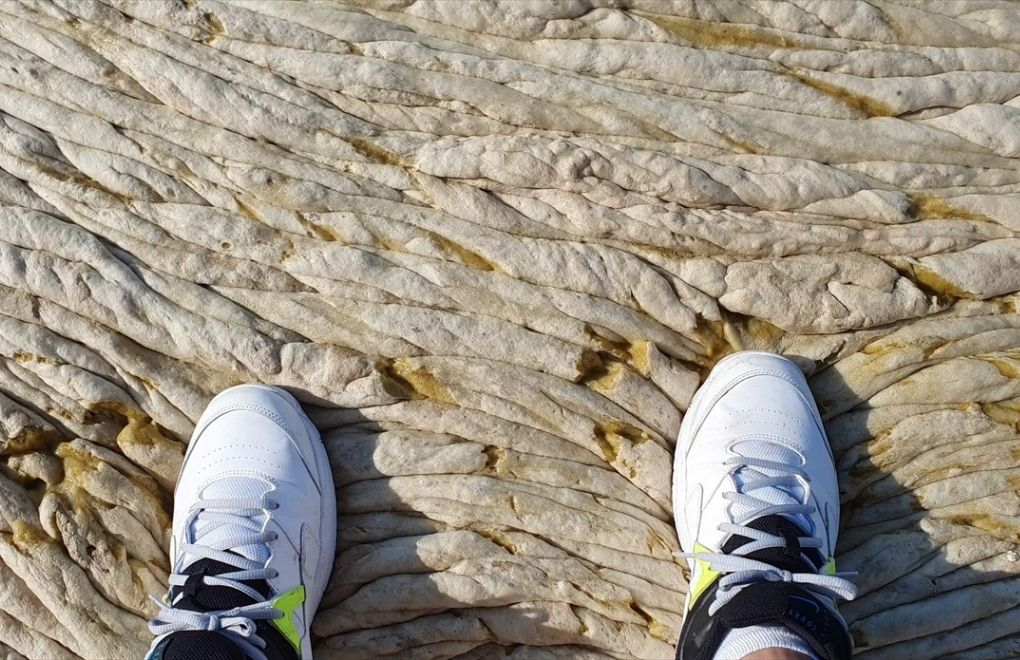 A thick layer of mucilage in Mudanya, Bursa. (Photo: Alper Altay)
A thick layer of mucilage in Mudanya, Bursa. (Photo: Alper Altay)
Scientists point out the government's wastewater policy in the region as one of the main causes of mucilage accumulation. Most of the wastewater of Marmara provinces is discharged into the deep sea only after preliminary treatment, according to a report by environmental engineers.
The wastewater was thought to be flowing towards the Black Sea in the north with a deep current. However, the mayor of Kocaeli admitted at a meeting with mayors and the minister that "We have used Marmara as a cesspool for decades."
What is mucilage and why has it spread in the Sea of Marmara?Marine mucilage, also called "foam" or "snot" by fishers, is the intense proliferation and color spiral of Gonyaulax fragilis, a type of phytoplankton, a single-cell organism. Even though mucilage is a natural phenomenon, it can damage the ecosystem when it grows excessively. The Turkish Marine Research Foundation (TÜDAV) states that this yellow, white, colored mud-like substance has been seen and spread frequently above and below the water in the Black Sea, Marmara, and Aegean Seas in the last two years. The Marmara Environmental Monitoring Project (MAREM), which has been drawing attention to the mucilage problem in the Sea of Marmara since 2007, points out that such anomalies are an indicator of the level of pollution in the sea. Project manager Levent Artüz emphasizes that mucilage, which has a very sticky and contagious structure, can bring the end of life in the sea. Stating that the vast majority of fish eggs are found on the surface of the sea and the eggs on the surface lose their chance of survival by being trapped in the mucilage, Artüz says the same is true for the larvae. According to the information Artüz conveyed in 1+1 Forum, the mucilage collapses over time on creatures that cannot move such as mussels, oysters, and tunicates and covers the sea meadows and cuts off their contact with light. On the other hand, experts explain the causes of mucilage as the loss of oxygen in the sea due to filling the coasts and wastes and the rise in temperatures in the Mediterranean Basin due to global climate change. Looking at the sea surface temperature data, the temperature of the Sea of Marmara this year is 2.5 degrees above the average of 40 years, in other words, there is an anomaly of 2.5 degrees. Around 25 million people live around the Sea of Marmara. Nearly half of Turkey's industry is located around it as well. In other words, all domestic, industrial, and agricultural wastes go directly or indirectly to the Sea of Marmara. Scientists say that the most important thing to do against mucilage is not to dump untreated waste into Marmara. Another suggestion is to start work as soon as possible to develop a new waste management policy that also takes into account climate change. |
(TP/VK)





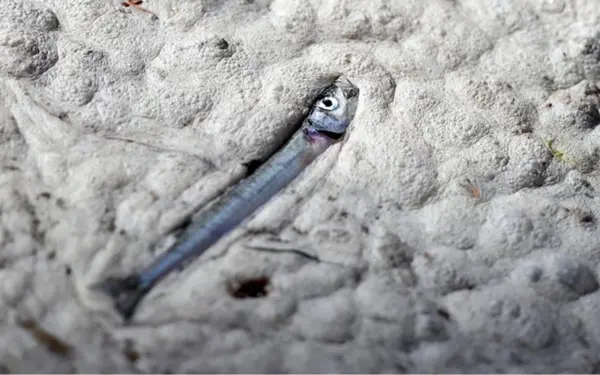
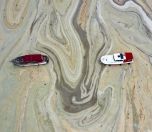
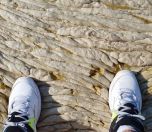
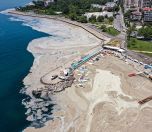
as.jpg)
